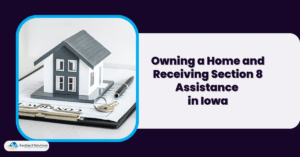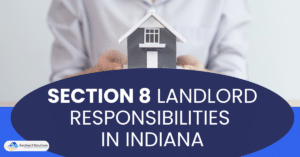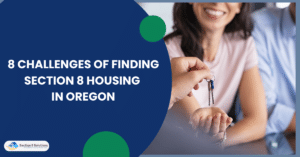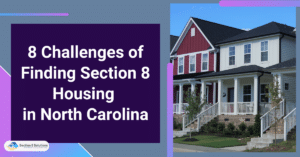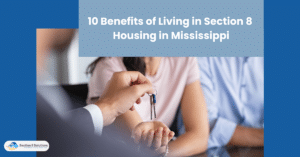The income limit for Section 8 in New Jersey varies depending on the location and the size of the household. As of 2021, the income limit for a one-person household ranges from $25,750 to $51,500, while the income limit for a four-person household ranges from $36,750 to $73,500. Applicants should check with their local housing authority for the latest limits.
In this blog post, we’ll explain what Section 8 is, how it works in New Jersey, and why knowing the income limits for Section 8 is so important.
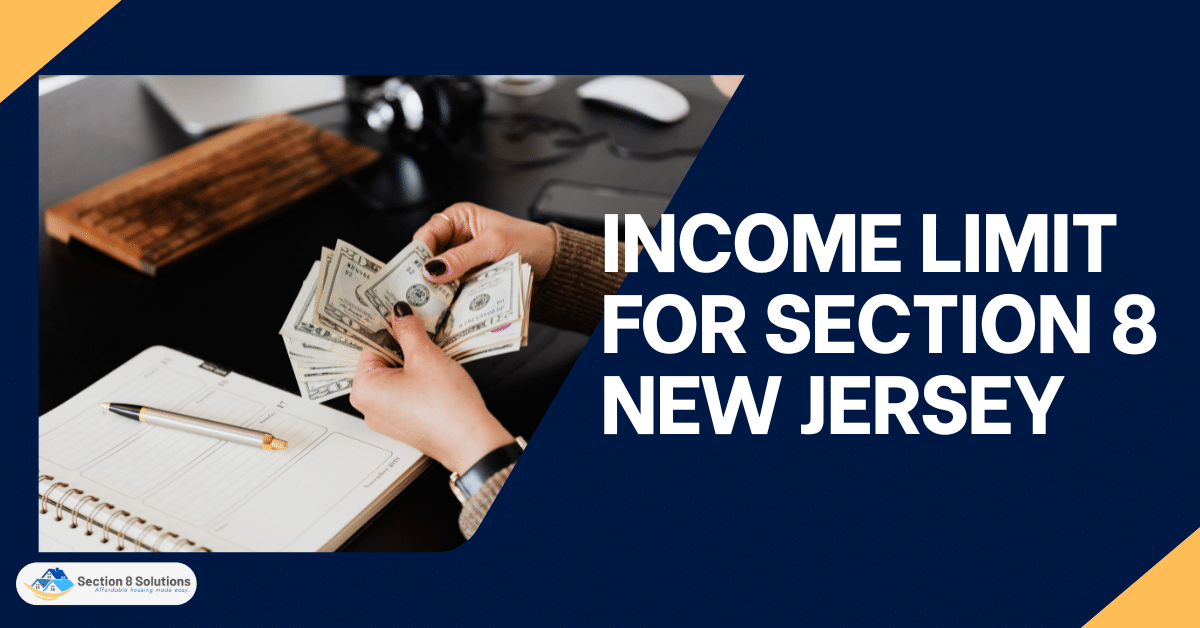
What Is Section 8 and How Does It Work in New Jersey?
Section 8 is a federal rental assistance program that helps low-income households afford safe and decent housing. Under the program, eligible households receive a voucher that can be used to pay a portion of their rent to a private landlord. The program is administered by the U.S. Department of Housing and Urban Development (HUD) and funded by Congress.
Local housing authorities in New Jersey determine eligibility, provide vouchers, and monitor program compliance for Section 8. The housing authority helps the household find qualifying units, and the landlord must agree to participate and meet certain standards, such as providing a safe and decent unit and following the lease.
Once the household finds an eligible unit and the landlord agrees to participate, the housing authority will enter into a contract with the landlord to provide rental assistance on behalf of the household. The household will generally pay 30% of its income toward rent and utilities, and the Section 8 program will pay the remainder of the rent directly to the landlord.

Who Is Eligible for Section 8 in New Jersey?
To be eligible for Section 8 rental assistance in New Jersey, households must meet certain requirements related to income, citizenship status, and criminal background.
First and foremost, households must meet the income limits established by HUD for the area in which they are seeking housing. In New Jersey, income limits vary by household size and location and are updated annually. Generally, households must have incomes below 50% of the area median income to be eligible for Section 8, although some programs may serve households with higher incomes.
Households must also be U.S. citizens, or have eligible immigration status, and provide documentation to verify their status. Additionally, all adult household members must undergo a criminal background check and may be denied assistance if they have a history of certain types of criminal activity.

What Are the Income Limits for Section 8 in New Jersey?
The income limits for Section 8 rental assistance in New Jersey play a critical role in determining eligibility for this program. Understanding how these limits are calculated, and how they vary by household size and location, can help you determine whether you qualify for assistance.
- The income limits for Section 8 in New Jersey are based on the area median income (AMI) for the region and are adjusted annually to reflect changes in the AMI.
- Generally, the income limits are set at 50% of the AMI, although some programs may serve households with higher incomes.
- The income limits vary by household size and location, with higher limits for larger households and households in areas with higher AMIs.
- As an example, for a household of one person in Bergen County, New Jersey, the income limit for Section 8 in 2022 is $48,450, while for a household of two people, the income limit is $55,400.
- In other parts of the state, the income limits may be lower or higher, depending on the AMI for the region.
- It’s important to check with your local housing authority or a HUD-approved housing counseling agency to determine the current income limits and eligibility criteria for Section 8 in your area.
Knowing the income limits for Section 8 in New Jersey is an important first step in determining your eligibility for rental assistance. By understanding how these limits are calculated and how they vary, you can better assess whether this program may be able to help you find safe and affordable housing.

How Can I Find Out if I Qualify for Section 8 in New Jersey?
New Jersey Section 8 helps low-income families locate safe, affordable homes. Before getting aid, check program eligibility. We’ll help you apply for Section 8 in New Jersey, from finding your local housing authority to waiting. Steps to determine New Jersey Section 8 rental aid eligibility:
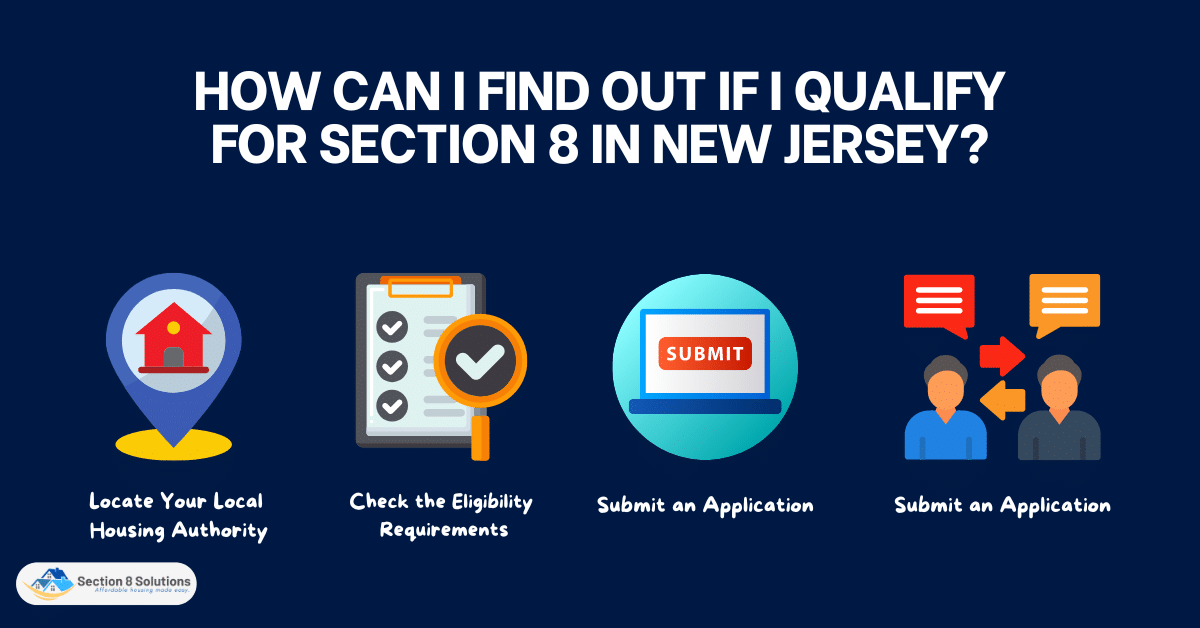
1. Locate Your Local Housing Authority
Find your local housing authority before applying for Section 8 rental assistance in New Jersey. Your local Section 8 agency will handle your application and participation. The HUD website has a searchable directory of housing authorities nationwide. Find your housing authority by state or zip code. Start your search using this simple method.
Contact your county or municipal government office to find your housing authority. They may provide contact information or refer you to the right agency. Local charities and community organizations may also assist you to connect with your housing authority.
2. Check the Eligibility Requirements
If you’ve located your local housing authority and are interested in applying for Section 8 rental assistance in New Jersey, the next step is to check the eligibility requirements for your area. Eligibility requirements can vary based on factors such as income, citizenship status, and criminal background checks. It’s important to carefully review these requirements to ensure you meet all the criteria before submitting your application. This can help increase your chances of being approved for Section 8 rental assistance in New Jersey.

3. Submit an Application
After confirming that you meet the eligibility requirements for Section 8 rental assistance in New Jersey, you’ll need to submit an application to your local housing authority. The application process typically involves providing documentation of your income, citizenship status, and other relevant information about your household.
It’s important to carefully review the application instructions and provide all necessary documentation to ensure that your application is complete. Incomplete applications may be rejected, so staying organized and submitting a complete application can help increase your chances of being approved for Section 8 rental assistance.

4. Wait for a Response
Once you’ve submitted your application, you’ll need to wait for a response from your local housing authority. Depending on the demand for rental assistance in your area, there may be a waiting list for Section 8.
Since Section 8 may have a waitlist, it’s best to apply early. Staying organized and knowledgeable during the application process can increase your chances of being qualified for this vital program and obtaining safe, affordable housing in New Jersey.

What If My Income Changes After Section 8 Approval in New Jersey?
Know how income fluctuations affect your eligibility for New Jersey Section 8 rental assistance. Section 8 eligibility may change if your income rises dramatically. If your income drops, you may receive more benefits.
Report any income or household composition changes to your local housing authority immediately. Report changes to avoid overpayment or underpayment of benefits, which could hurt you or your landlord. New Jersey Section 8 eligibility may change if you lose a job, get promoted, or start a new career.
Your local housing authority provides a form for reporting income or household changes. The form may request your new income, job status, and the names and ages of any additional household members. To ensure your benefits are changed, submit this form immediately following the change.
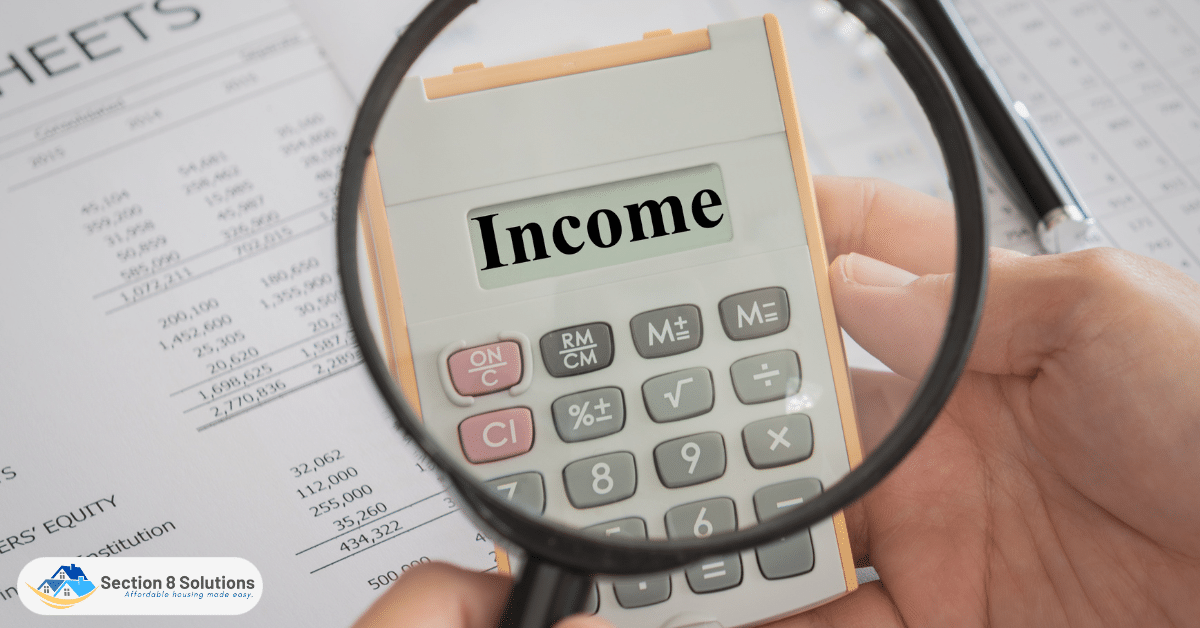
Conclusion
In conclusion, Section 8 is an important program that provides rental assistance to low-income households in New Jersey. It’s crucial to understand the income limits for Section 8 in order to determine eligibility for this program. Based on the median income for the area, household size, and location determine income restrictions.
It’s also important to report changes in income to avoid losing benefits. If you think you qualify for Section 8, contact your local housing authority or a competent specialist.



